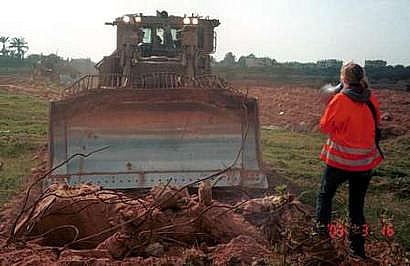Category: In the Media
-
Rachel Corrie: Blaming the victim
Attorney Hussein Abu Hussein, who represented Rachel Corrie’s family in its suit against Israel, says they knew from the beginning that it would be an uphill battle to find truth and justice in an Israeli court. By Hussein Abu Hussein 02 September, 2012 | Haaretz On Tuesday, Judge Oded Gershon of the Haifa District Court…
-
Judge blaming Rachel Corrie for her own death highlights Israel’s impunity, family says
By Jillian Kestler-D’Amours 28 August 2012 | Electronic Intifada, Haifa The Haifa District court ruled earlier today that the Israeli military is not responsible for killing American activist Rachel Corrie, and that Corrie was to blame for her own death. “Even when she saw the mount of earth moving towards her, she did not move…
-
‘Welcome to Palestine’ group denied entry into West Bank
26 August, 2012 | Ma’an News, Bethlehem, West Bank Dozens of foreign peace activists were denied entry into the West Bank by Israeli authorities at the Allenby Bridge crossing on Sunday evening, organizers of the third ‘Welcome to Palestine’ initiative said. “The Welcome to Palestine Campaign decries the Israeli denial of entry via the Allenby…

